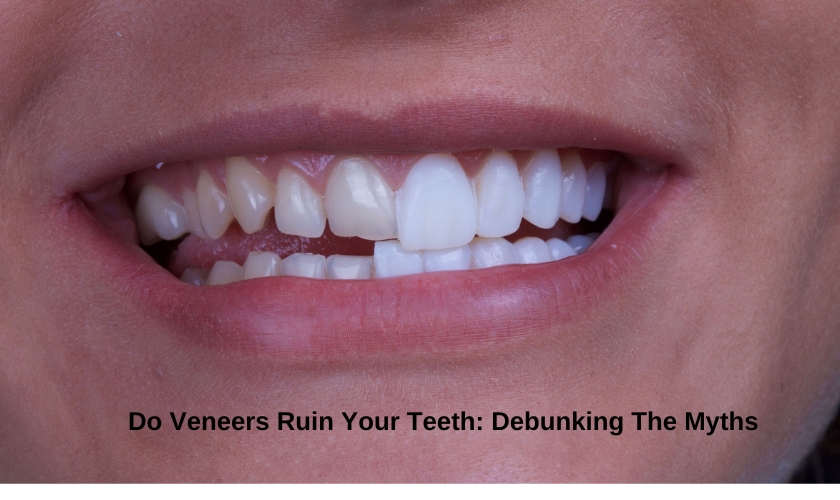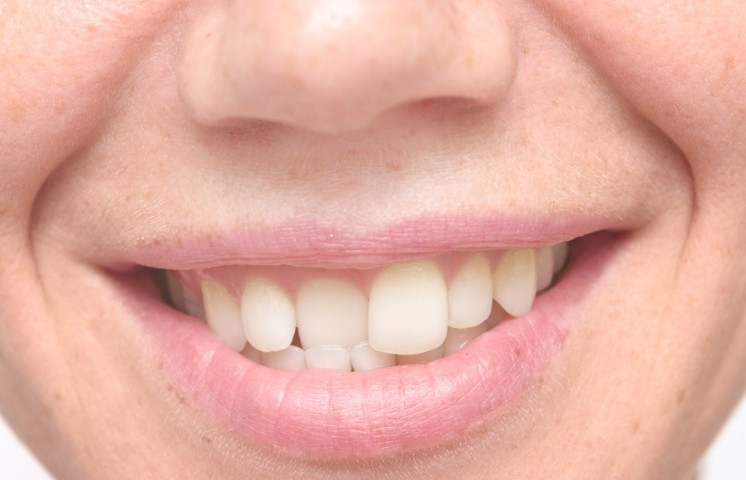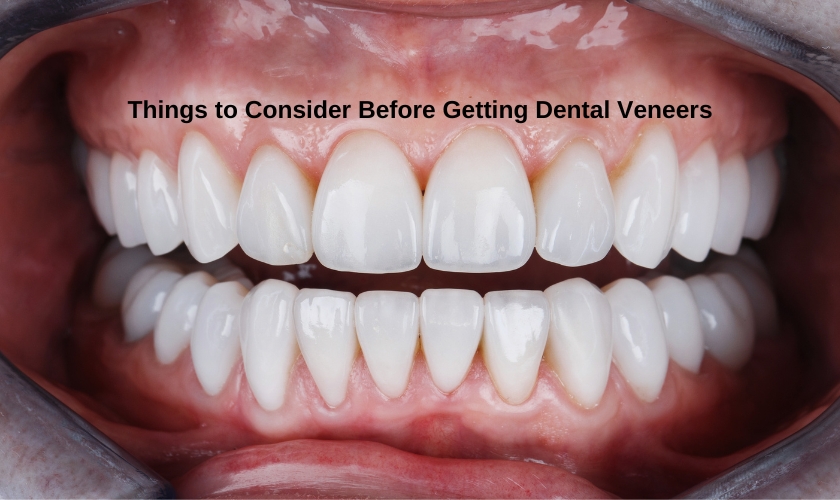We are not a registered Medicare/Medicaid Provider

Veneers are a popular cosmetic dentistry treatment, yet there are plenty of myths surrounding their impact on teeth. Some believe that veneers can damage natural teeth or cause long-term issues. But are these concerns valid? In this blog, we’ll focus on debunking myths about veneers to help you make an informed decision. Whether you’re considering veneers for aesthetic reasons or to fix dental imperfections, understanding the facts can give you peace of mind.
What Are Veneers?
Veneers consist of thin, custom-made shells that dentists place over the front of your teeth. Typically made from porcelain or composite resin, veneers enhance the appearance of your smile by covering imperfections such as discoloration, chips, or gaps. Many people turn to veneers for a quick and effective solution to get a brighter, more uniform smile.
Debunking Myths About Veneers
Let’s break down the common myths surrounding veneers and separate fact from fiction.
Myth 1: Veneers Weaken Your Teeth
One of the biggest misconceptions is that veneers weaken or ruin your natural teeth. This myth has been around for a while, but it’s completely false. When applying veneers, the dentist removes only a small amount of enamel to ensure a perfect fit and natural appearance. The minimal enamel removal does not compromise the strength of your teeth. In fact, veneers act as a protective layer, helping to preserve the health of your natural teeth underneath.
Myth 2: Veneers Look Fake and Unnatural
Another myth is that veneers look overly white and fake. However, modern veneers are designed to look just like natural teeth. They can be customized in terms of shape, size, and color to match the rest of your teeth. This customization ensures that your veneers blend seamlessly into your smile, providing a natural, aesthetically pleasing appearance. With the advancements in dental technology, it’s almost impossible to tell the difference between veneers and real teeth.
Myth 3: Veneers Cause Sensitivity
Many people worry that veneers will make their teeth sensitive to hot or cold. While you may experience some temporary sensitivity after the procedure, this typically fades within a few days. Once your veneers fully bond, they actually provide an additional layer of protection to your teeth, which can help reduce sensitivity in the long run.
Myth 4: Veneers Require Constant Maintenance
Another common myth is that veneers need excessive care and maintenance. This is far from the truth. Caring for veneers is similar to caring for your natural teeth. All you need to do is brush twice a day, floss daily, and visit your dentist regularly. Veneers are durable and resistant to staining, but following proper oral hygiene is essential to ensure their longevity.
Myth 5: Veneers Are Only for Cosmetic Purposes
While people commonly use veneers for cosmetic enhancements, they also serve functional purposes. Veneers can help correct issues like worn-down teeth, minor misalignments, or gaps. In some cases, they can provide an alternative to braces for certain dental issues. So, while veneers do enhance the look of your smile, they can also improve your dental health and function.
Benefits of Veneers
Now that we’ve gone over debunking myths about veneers let’s take a look at some of the benefits veneers can offer:
- Improves appearance: Veneers can transform your smile by covering imperfections like discoloration, chips, and gaps.
- Boosts confidence: A better smile often leads to increased self-esteem and confidence in social situations.
- Stain resistance: Porcelain veneers are highly resistant to stains, meaning your bright smile lasts longer.
- Long-lasting: Veneers can last up to 10-15 years with proper care.
Are Veneers Right for You?
If you’re considering veneers, it’s important to consult with a dentist who can guide you through the process. Veneers are not a one-size-fits-all solution, and your dentist will assess your dental health to determine if they’re the right option for you. However, it’s clear from debunking myths about veneers that they don’t harm your teeth and offer several advantages when done properly.
Veneers Are Safe and Effective
There’s no reason to fear that veneers will ruin your teeth. The myths we’ve debunked show that veneers are a safe and effective option for improving both the appearance and function of your teeth. With proper care and regular dental checkups, veneers can last for many years without any issues.
Whether you want to enhance your smile or correct a dental problem, veneers are a reliable option. And now that we’ve spent time debunking myths about veneers, you can move forward with confidence, knowing the facts.
Veneers can be a great investment in your dental health and appearance when approached with accurate information and professional guidance.
Frequently Asked Questions About Veneers
Do veneers damage enamel?
Veneers require the removal of a small amount of enamel, but this is minimal and doesn’t damage your teeth. The purpose is to create a better fit, and once applied, veneers act as a protective layer over your natural teeth.
Can veneers be removed if I don’t like them?
Veneers are a permanent solution, as the enamel removal makes it impossible to go back to your natural teeth. However, if you’re not satisfied, they can be replaced or adjusted to improve the fit or appearance.
How long do veneers last?
Veneers typically last between 10 to 15 years with proper care. Some may last even longer if you maintain good oral hygiene and avoid damaging habits like biting on hard objects.
Do veneers change color over time?
Porcelain veneers are highly resistant to stains, so they won’t change color as natural teeth do. However, it’s still important to care for them properly to keep them looking bright.
Can you eat normally with veneers?
Yes, you can eat normally with veneers. However, it’s wise to avoid biting down on hard foods, ice, or anything that could damage them, especially if they’re made from porcelain.



